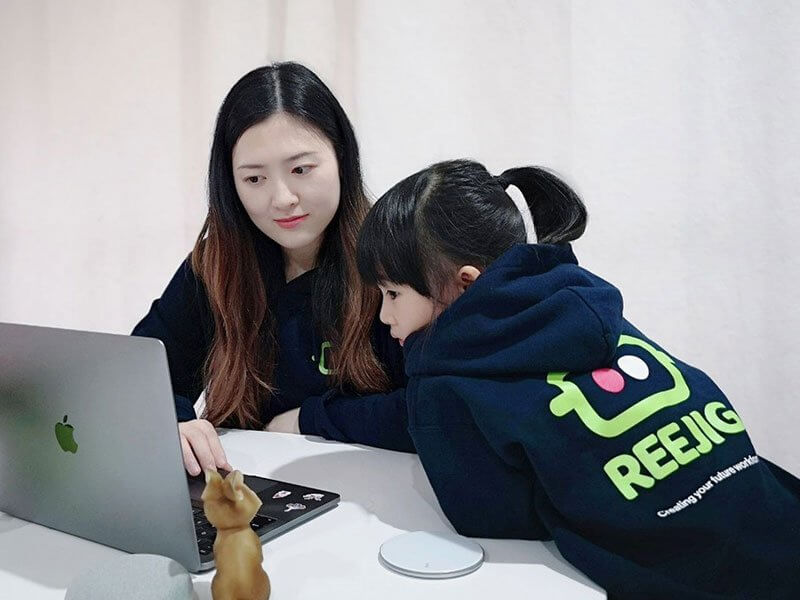Defining the next generation of STEM careers
Dr. Shujia Zhang
3 mins
Dec 18, 2019

Defining the next generation of STEM careers
Blog Post Body
Table of Contents
Talk to a Work Strategist
See the Work Operating System in action and start re-engineering work for AI.
Subscribe to our newsletter
The latest insights on re-engineering work for AI
An interview with Chief Data Scientist & Reejig Co-Founder, Dr. Shujia Zhang
With a passion for data science and solving complex problems, Dr. Shujia Zhang reflects on her career in STEM and what she believes will be critical for the next generation of scientists and engineers.
Dr. Zhang is the Chief Data Scientist and Co-Founder of Reejig, an award-winning workforce intelligence platform that provides a talent intelligence platform to help global enterprises, governments, and academia to navigate the future of work.
“I knew I wanted a career in STEM when I began investigating ways to automate calculations. That coupled with my love of cutting-edge technology and continuous learning fueled my career choice,” says Dr. Zhang.
Her career in the industry includes leading large-scale data projects, designing and developing data science solutions to enable business growth, data mining, building machine learning models, creating native iOS apps, and designing and implementing UI/UX and back-end algorithms.
Dr. Zhang also spent more than four years in research roles at the University of Wollongong, where she focused on: computer vision, specifically, motion and action recognition; machine learning recognition frameworks to address human action recognition problems; and, recursive deep neural networks.
“It’s important to embrace fairness and transparency when developing AI. We should work collaboratively to build AI that prohibits discrimination of any type.”
The future of STEM skill sets
With a Ph.D. under her belt, Dr. Zhang suggests the future of STEM is exciting and different. She explains the transformative impact that machine learning and Artificial Intelligence (AI) have on how we work, live, and play.
She talks about the increasing significance of ethics and values, as part of AI development, “It’s important to embrace fairness and transparency when developing AI. We should work collaboratively to build AI that prohibits discrimination of any type.”
Dr. Zhang also believes future careers in STEM will require a broader skillset and that students would benefit from an increased number of partnerships with industry. This sentiment is shared by many leaders across the nation.
Consult Australia (CA) recently published a discussion paper that indicated the focus and performance of STEM education needs to evolve to meet the changing demands of future jobs and workplaces. CA reported there is a growing need for “hybrid STEM skills – the ability to deliver ‘soft’ digital and technology solutions with ‘hard’ engineering skills. Underpinning these skills will be creative thinking and a blend of digital skillsets with core expertise.”
Diversity and inclusion in STEM
Dr. Zhang is hopeful that the STEM workforce will have greater female participation in the future.
“Looking back, I recall the stark gender imbalance that I experienced as the only female in the class when I completed my Bachelor’s Degree. I appreciate there have been improvements in gender diversity, both in the industry and academia, but there’s more work to be done to attract and retain women to STEM. My five-year-old daughter, Chloe, has already shown interest in computers and I hope the STEM community is more balanced by the time she attends university.”
Turning the lens to Dr. Zhang’s greatest achievements, she cites two professional milestones; completing her Ph.D.; and, transitioning from academia to industry, as she thoroughly enjoys working with customers to solve problems.
From a personal perspective, the achievement that has her beaming with pride is being a mother to Chloe. She says, “Juggling work/life commitments are difficult but I’m lucky to have a supportive husband and family. Both enable me to have a little downtime to bake, play board games and click my way through a Rubik’s cube.”
Talk to a Work Strategist
See the Work Operating System in action and start re-engineering work for AI.
Subscribe to our newsletter
The latest insights on re-engineering work for AI